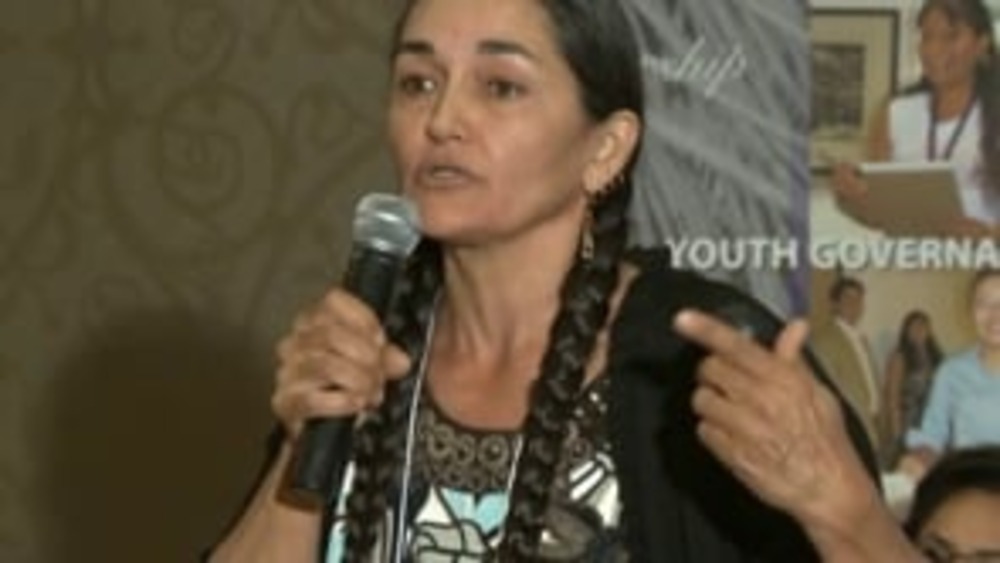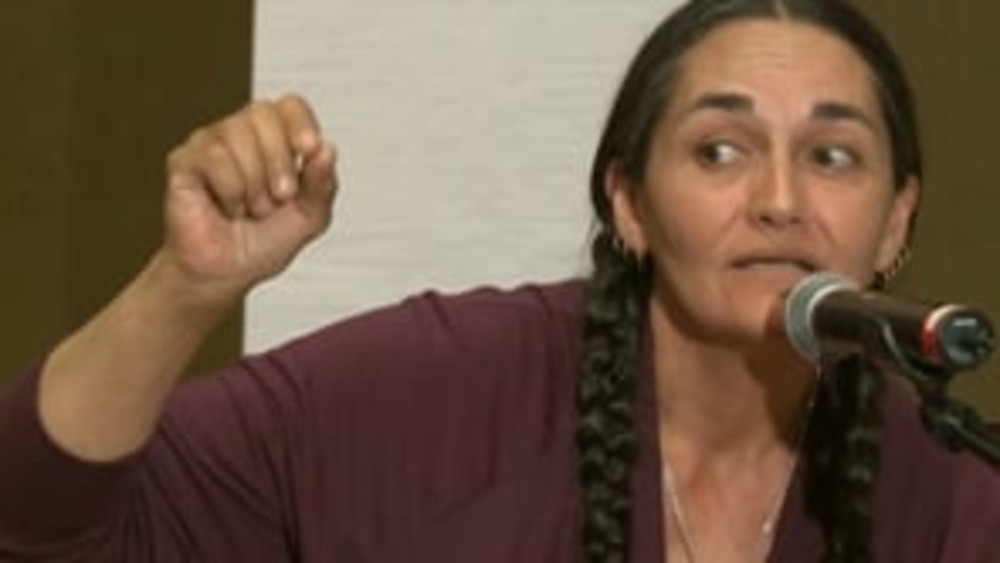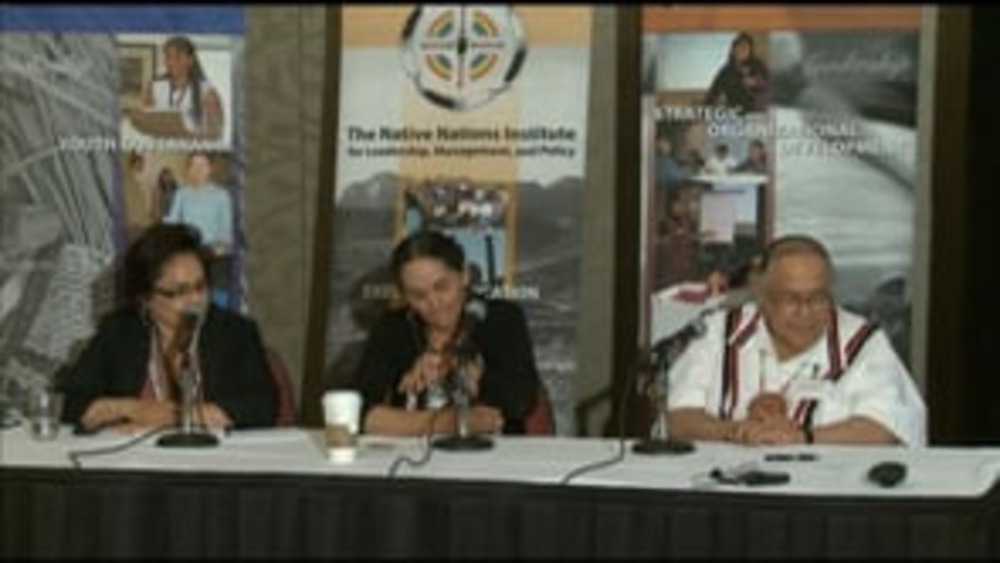Gwen Phillips, Director of Corporate Services and Governance Transition with the Ktunaxa Nation, discusses some of the issues that the Ktunaxa Nation is deliberating as it engages the question of how to redefine its criteria for citizenship.
Additional Information
Phillips, Gwen. "Reforming the Ktunaxa Nation Constitution: What We're Doing and Why." Tribal Constitutions seminar. Native Nations Institute for Leadership, Management, and Policy, University of Arizona. Tucson, Arizona. May 1, 2012. Presentation.
Transcript
“And we have to be really cautious as we use words, because words create worlds, we’ve come to see. And worlds are different all over the place. They’re different for every one of us, the world that we come from in our immediate. So the constitutions that we create really have to be reflections of ourselves in our immediate place and space [Ktunaxa language], the word [Ktunaxa language] means something that is actually connected to the earth. The picture in the middle is some hoodoos, and in that particular region of our territory is where our creation story is said to have taken place. The very end of it, when the humans were brought to the earth. ‘We came from the dirt,’ it is said, so [Ktunaxa language], the suffix of that or the root word of that one with the added suffix of [Ktunaxa language] means taking your life from the earth. [Ktunaxa language] means literally as me, a human, my children, my grandchildren, my great grandchildren. So when you understand the connection of those phrases, those terms, it’s immediate and it’s huge. It’s not saying necessarily that we own the land, that we take our lives from the land. [Ktunaxa language] -- also Ktunaxa words. The Ktunaxa language is one of the isolate languages in the world. It’s not related to any other language. It’s only spoken by my people. It breaks down into no further dialects. In Canada we have 11 aboriginal language families. My language is one of those 11, and it’s the most critically endangered of all of those languages at this point in time. My land, my language, my people. If nothing more, our constitution has got to speak to, understand, and reflect those concepts back to ourselves.”



